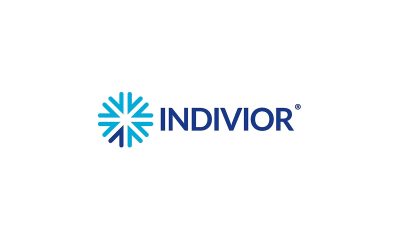/home/grassnews/public_html/wp-content/themes/zox-news/parts/post-single.php on line 153
">
Warning: Undefined array key 0 in /home/grassnews/public_html/wp-content/themes/zox-news/parts/post-single.php on line 153
Warning: Attempt to read property "cat_name" on null in /home/grassnews/public_html/wp-content/themes/zox-news/parts/post-single.php on line 153
NASA’s Landmark Twins Study Reveals Resilience of Human Body in Space
 Reading Time: 4 minutes
Reading Time: 4 minutes
Results from NASA‘s landmark Twins Study, which took place from 2015-2016, were published Thursday in Science. The integrated paper — encompassing work from 10 research teams — reveals some interesting, surprising and reassuring data about how one human body adapted to — and recovered from — the extreme environment of space.
The Twins Study provides the first integrated biomolecular view into how the human body responds to the spaceflight environment, and serves as a genomic stepping stone to better understand how to maintain crew health during human expeditions to the Moon and Mars.
Retired NASA astronauts Scott Kelly and his identical twin brother Mark, participated in the investigation, conducted by NASA’s Human Research Program. Mark provided a baseline for observation on Earth, and Scott provided a comparable test case during the 340 days he spent in space aboard the International Space Station for Expeditions 43, 44, 45 and 46. Scott Kelly became the first American astronaut to spend nearly a year in space.
“The Twins Study has been an important step toward understanding epigenetics and gene expression in human spaceflight,” said J.D. Polk, chief Health and Medical Officer at NASA Headquarters. “Thanks to the twin brothers and a cadre of investigators who worked tirelessly together, the valuable data gathered from the Twins Study has helped inform the need for personalized medicine and its role in keeping astronauts healthy during deep space exploration, as NASA goes forward to the Moon and journeys onward to Mars.”
Key results from the NASA Twins Study include findings related to gene expression changes, immune system response, and telomere dynamics. Other changes noted in the integrated paper include broken chromosomes rearranging themselves in chromosomal inversions, and a change in cognitive function. Many of the findings are consistent with data collected in previous studies, and other research in progress.
The telomeres in Scott’s white blood cells, which are biomarkers of aging at the end of chromosomes, were unexpectedly longer in space then shorter after his return to Earth with average telomere length returning to normal six months later. In contrast, his brother’s telomeres remained stable throughout the entire period. Because telomeres are important for cellular genomic stability, additional studies on telomere dynamics are planned for future one-year missions to see whether results are repeatable for long-duration missions.
A second key finding is that Scott’s immune system responded appropriately in space. For example, the flu vaccine administered in space worked exactly as it does on Earth. A fully functioning immune system during long-duration space missions is critical to protecting astronaut health from opportunistic microbes in the spacecraft environment.
A third significant finding is the variability in gene expression, which reflects how a body reacts to its environment and will help inform how gene expression is related to health risks associated with spaceflight. While in space, researchers observed changes in the expression of Scott’s genes, with the majority returning to normal after six months on Earth. However, a small percentage of genes related to the immune system and DNA repair did not return to baseline after his return to Earth. Further, the results identified key genes to target for use in monitoring the health of future astronauts and potentially developing personalized countermeasures.
“A number of physiological and cellular changes take place during spaceflight,” said Jennifer Fogarty, chief scientist of the Human Research Program at NASA’s Johnson Space Center in Houston. “We have only scratched the surface of knowledge about the body in space. The Twins Study gave us the first integrated molecular view into genetic changes, and demonstrated how a human body adapts and remains robust and resilient even after spending nearly a year aboard the International Space Station. The data captured from integrated investigations like the NASA Twins Study will be explored for years to come.”
Part of the record-setting one-year mission, the NASA Twins Study incorporated 10 investigations to advance NASA’s mission and benefit all of humanity. Scott participated in a number of biomedical studies, including research into how the human body adjusts to known hazards, such as weightlessness and space radiation. Meanwhile, Mark participated in parallel studies on Earth to help scientists compare the effects of space on a body down to the cellular level. The findings represent 27 months of data collection.
The Twins Study helped establish a framework of collaborative research that serves as a model for future biomedical research. Principal investigators at NASA and at research universities across the nation initiated an unprecedented sharing of data and discovery. Supported by 84 researchers at 12 locations across eight states, the data from this complex study was channeled into one inclusive study, providing the most comprehensive and integrated molecular view to date of how a human responds to the spaceflight environment. While significant, it is difficult to draw conclusions for all humans or future astronauts from a single test subject in the spaceflight environment.
“To our knowledge, this team of teams has conducted a study unprecedented in its scope across levels of human biology: from molecular analyses of human cells and the microbiome to human physiology to cognition,” said Craig Kundrot, director, Space Life and Physical Sciences Research and Application Division at NASA Headquarters. “This paper is the first report of this highly integrated study that began five years ago when the investigators first gathered. We look forward to the publication of additional analyses and follow-up studies with future crew members as we continue to improve our ability to live and work in space and venture forward to the Moon and on to Mars.”
The unique aspects of the Twins Study created the opportunity for innovative genomics research, propelling NASA into an area of space travel research involving a field of study known as “omics,” which integrates multiple biological disciplines. Long-term effects of research, such as the ongoing telomeres investigation, will continue to be studied.
NASA has a rigorous training process to prepare astronauts for their missions, including a thoroughly planned lifestyle and work regime while in space, and an excellent rehabilitation and reconditioning program when they return to Earth. Thanks to these measures and the astronauts who tenaciously accomplish them, the human body remains robust and resilient even after spending a year in space.
For more information about the NASA Twins Study, visit:
https://www.nasa.gov/twins-study
SOURCE: NASA

Warning: Undefined array key 0 in /home/grassnews/public_html/wp-content/themes/zox-news/parts/post-single.php on line 493
Warning: Attempt to read property "cat_ID" on null in /home/grassnews/public_html/wp-content/themes/zox-news/parts/post-single.php on line 493
Cannabis
Sannabis, Inc. (OTC: USPS) Announces First Shipment of Cannabis Essential Oil from Colombia to U.S. to Fill First Order, as the DEA Re-Classifies Marijuana from Schedule I to Schedule III
Humboldt
Humboldt Seed Company partners with Apollo Green to bring California cannabis genetics to the global marketplace
Apollo Green to distribute Humboldt Seed Company clonal cannabis genetics to Germany, Portugal and Australia
SAN FRANCISCO, April 30, 2024 /PRNewswire/ — Humboldt Seed Company (HSC), California’s leading cannabis seed producer, has announced a partnership with Canadian-based Apollo Green to make eight breeder cuts available to researchers, licensed commercial cultivators and home growers in legal markets worldwide. This first-to-market clonal genetics release is a significant milestone and will expand access to distinctive, high-quality cannabis genetics in both established and emerging global markets including Germany, Portugal and Australia.
The curated, breeder-verified selection includes pioneering triploid genetics, such as OG Triploid and Donutz Triploid alongside the legendary cult classic Blueberry Muffin. Also available are All Gas OG with a THC content of 21% and four high-THC strains in the 30-35% range: Golden Sands, Guzzlerz, Jelly Donutz and Orange Creampop. These selections represent the top .01% from HSC’s extensive California pheno-hunting program.
Exports will begin in May under Apollo Green’s Canadian federal cannabis license. All shipments have Canadian phytosanitary certification, ensuring plants have been inspected, and are clean and free of pests.
“Access for all to quality genetics has been our core focus since the beginning,” said HSC Co-founder and Chief Science Officer, Benjamin Lind. “Our science-based approach to breeding aligns perfectly with Apollo Green’s high standards and we are excited to be able to extend these hand-selected cuts to a wider audience, especially at this pivotal time where we’re seeing positive regulatory changes globally.”
Oisin Tierney, Apollo Green Director of Business Development, said, “California has long been recognized for setting industry standards, and we are proud to play a role in bringing these esteemed genetics to cultivators worldwide. The triploids are especially noteworthy in terms of the unprecedented potential for enhanced plant vigor, higher yields, shorter flowering times and superior returns for solventless extraction.”
About Humboldt Seed Company
Established in 2001, Humboldt Seed Company is a Northern California heritage brand providing quality cannabis genetics to commercial cultivators and home growers in legalized states across the U.S. and international markets including Spain, Canada, Jamaica, South Africa, Colombia, France, Portugal, Greece, the UK, Malta and Thailand. With a focus on environmental and social justice, they combine traditional breeding and modern scientific practices in their strain development program. They have served the cannabis community for over two decades.
For more information visit https://humboldtseedcompany.com/.
About Apollo Green
Licensed since 2019, Apollo Green is Canada’s leader in cannabis genetics. The company’s mission is to provide an ever-growing bank of seeds and clones to medical patients and recreational consumers. Apollo Green provides clean, trusted cannabis seeds and clones, which are backed by the foremost tissue culture technology to reduce risks, costs and time-to-market for licensed producers around the world. Apollo Green is passionate about cannabis genetics.
For more information visit https://apollogreen.com/.
Media contact
Jaana Prall
[email protected]
Logo – https://mma.prnewswire.com/media/2328955/Humboldt_Seed_Company_Logo.jpg
![]() View original content:https://www.prnewswire.co.uk/news-releases/humboldt-seed-company-partners-with-apollo-green-to-bring-california-cannabis-genetics-to-the-global-marketplace-302131618.html
View original content:https://www.prnewswire.co.uk/news-releases/humboldt-seed-company-partners-with-apollo-green-to-bring-california-cannabis-genetics-to-the-global-marketplace-302131618.html

Cannabis
Technological Advancements in Breathalyzers Drive Market Growth and Enhance Road Safety
-
Cannabis2 weeks ago
Sannabis, Inc. (OTC: USPS) Unveils Innovative NO LICK! Terpene Spray for Cannabis Products to Enhance CBD and THC to Achieve the Entourage Effect
-
Cannabis2 weeks ago
Cannabis Concentrate Market to Cross US$2.4 Billion by 2030 amid Rising Medical and Recreational Demand
-

 Innocan1 week ago
Innocan1 week agoInnocan Pharma Initiates FDA Approval Process for Liposome Injection Therapy for Chronic Pain
-

 Curaleaf1 week ago
Curaleaf1 week agoCuraleaf Completes Acquisition of Northern Green Canada
-

 Cannabis1 week ago
Cannabis1 week agoCannabis Capsule Global Analysis Report 2024: Market to Reach $79.2 Billion in 2028 – Forecast to 2033 Featuring GW Pharmaceuticals, Trulieve Cannabis, Green Thumb Industries, Tilray, Columbia Care
-

 SCHWAZZE3 days ago
SCHWAZZE3 days agoSchwazze Sets First Quarter 2024 Conference Call for May 15, 2024 at 5:00 p.m. ET
-
Cannabis2 days ago
Technological Advancements in Breathalyzers Drive Market Growth and Enhance Road Safety
-
Humboldt2 days ago
Humboldt Seed Company partners with Apollo Green to bring California cannabis genetics to the global marketplace















